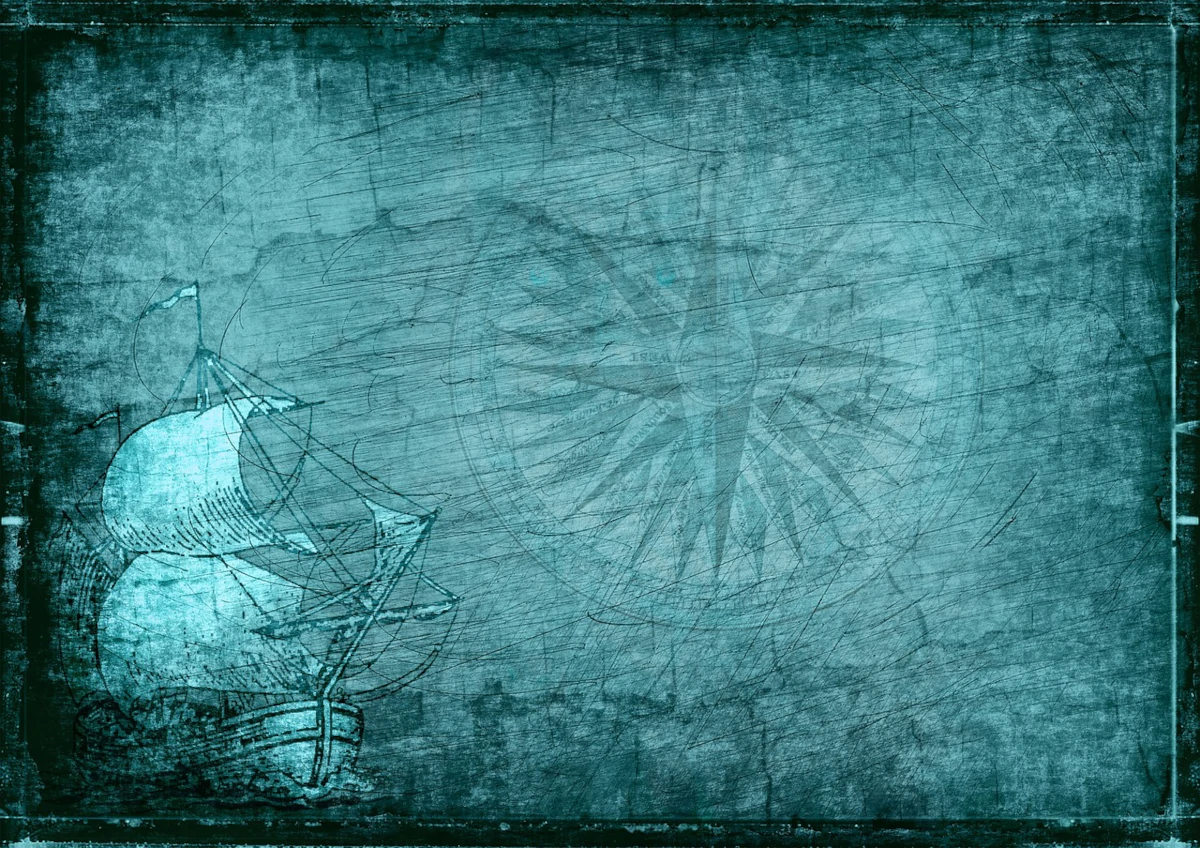
Norman’s Compass
Words By Matthew Gregory, Art By Unknown
Even after Norman quit sailing he insisted on carrying his compass wherever he traveled. When word of his daughter’s nuptials found him long after invitations were sent out, the compass was the only item he took with him save his gray tweed suit and the cane he’d been using since his retirement. After following the dial south through the white afternoon, he reached the Sycamore event hall shortly before the wedding. His absence so prolonged now, he doubted anyone would recognize him.
Norman slipped the compass into his pocket, and the glass door swung out before him, freeing excited voices and muffled piano notes. He hurried inside, worried he might bring unneeded attention to himself, attention that was reserved for the bridal party, the groomsmen, and the newlyweds. In the lobby a line of paired men and women gathered, escorting each other into the main hall where cameras flashed and clicked. When only two remained along with Norman, the music stopped. He crept behind the bride and mother. He hardly recognized the bride as the young woman at his bedside, whose trembling hand had clutched his own when he left. She was more breathtaking in stature, taller than her parents, proud, unafraid of her beauty. It came from her mother, he decided, and through years of his absence. Abandoning someone so precious and callow—his failure. It shook him.
The music started again, and an unyielding urge pulled him. His cane fell at the threshold, and he held on as they moved forward. The guests faced the three in the aisle—the graceful bride, guided by her mother and a forgotten man. To Norman most of the guests were strangers, perhaps a few friends once recognizable, but their names he could no longer say. Smiles and whispers met them in each row. Norman took comfort in the thoughts a few guests had for the missing father. Their brief moments of pity became awe and joy for the deserving bride as the music brought them to the front and to the end. Her mother left her side, while Norman lingered for a moment, invigorated from the journey. He was indebted to her mother for the child they created, and for whom she alone developed and refined. He kissed the bride’s cheek, swearing he felt moisture on his dry lips. Living was reason to celebrate, and he remained hidden while vows and rings were exchanged.
Later in the evening, after cake was shared and Norman danced, he saw his daughter slip unnoticed into the dressing room. It was his chance for a final goodbye. She was waiting in front of the vanity, holding his compass in her palm. He opened his mouth to speak.
Far outside of town, a ship’s horn blared. Its deep heaviness shook the building, and Norman fell. The compass split open in her hand and drew his breath. The dial swiveled, finally resting northward, showing him out. He cried out, but the ship’s horn sounded again, shattering the floor, knocking him back and muting him. She turned, and he believed she could also hear it. By the time the third horn called he was gone, and the compass clicked shut. Someone knocked on the door, but she would need some time before returning to the reception. Her hand was trembling again.